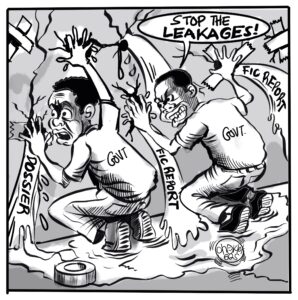Minister of Energy David Mabumba says Zambia has sent technocrats to learn nuclear management in Russia, as the country steps up efforts to venture into atomic energy production.
In an interview, Mabumba said nuclear energy was very complex and government needed to build capacity before taking any further steps towards nuclear energy production.
“Nuclear energy is something that is very complex all over the world, not only in Africa, even in the advanced economies where science and technology is advanced, it is very cautious, it is a very cautious investment any country has to exercise. Even in Zambia, that is what we are doing. Of course a direction has been made and that is the direction but in the context of the pronouncement, what Zambia is now doing is to try and build nuclear capability within our state institutions and within our people,” Mabumba said.
“You cannot go to the international nuclear agencies and say we want to venture into this when you do not have people who understand it; the state institutions who do not have the capability. So in terms of the cautionary measure, what we are now doing after the announcement is to build capacity, people have been sent to Russia for training, we have an MoU with our colleagues in China and in Russia, just to try and see how they can help us to build that capacity,” Mabumba said.
Mabumba said ZNBC would soon start airing programmes sensitizing people about nuclear energy so that people could have their questions clarified.
“That capacity also includes publicity, there will be a time when things will come on ZNBC, and a number of other events just to try and give Zambians the clarifications that they need. So at the moment, it is at its infancy stage, we are trying to build capacity just like any nation would do before they make a decision and the investment is made,” said Mabumba.
Recently, The Russian government pledged to help Zambia construct a Nuclear Science and Technology Centre.
Russian Foreign Affairs Minister Sergey Lavrov disclosed this in Moscow, during official talks with Minister of Foreign Affairs Harry Kalaba.
Lavrov said the Centre for Nuclear Science and Technology would be constructed under the Inter-governmental agreement on nuclear cooperation between the two countries for peaceful purposes.
And Kalaba said Zambia would continue to focus attention on pursuing alternative sources of Energy including the nuclear technology as part of a diversified energy mix to power the Zambian economy.
According to the International Atomic Energy Agency, proof exists showing that the development of nuclear power and related infrastructure has a positive impact on the social and economic conditions of a country and in adjacent regions.
Besides being a source of clean energy, the atom is also instrumental in solving a number of crucial issues in guaranteeing social and economic development.
“Nuclear power is a driver of scientific and technological progress. Its contribution to sustainable development is substantial. Nuclear technologies are widely used both in the energy sector and in many non-energy spheres. Its’ application in production processes helps dealing with various challenges of global development, such as ensuring environmental, energy and food safety and facilitating the advancement of science,” said Yukiya Amano, Director General of the IAEA at the 60th General Conference of the International Atomic Energy Agency.
“Over the last 60 years, nuclear science and technology have been essential to the sustainable development of countries. By guaranteeing the availability of nuclear science and technology, we make a valuable contribution to the improvement of people’s lives all over the world.”
























